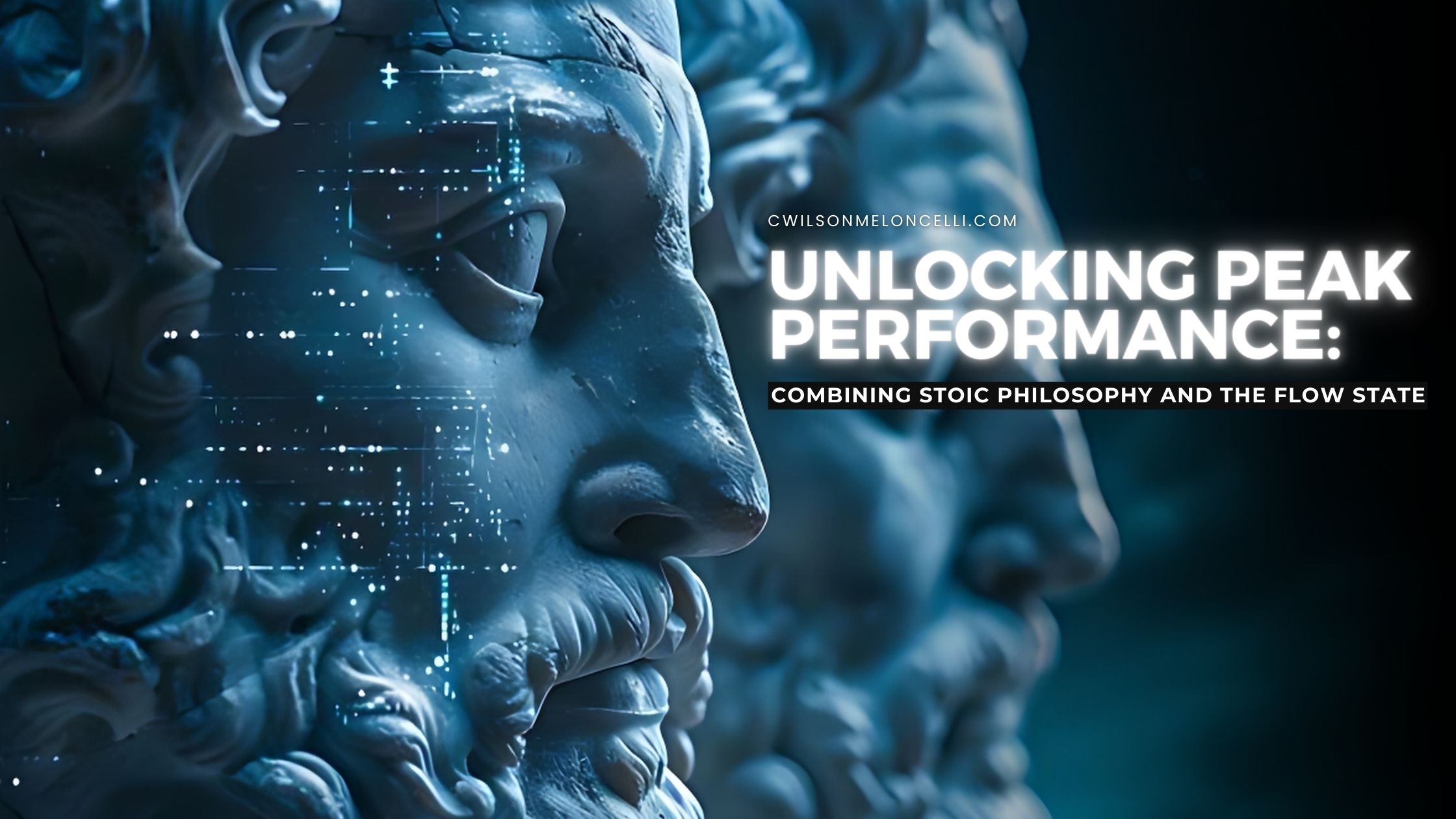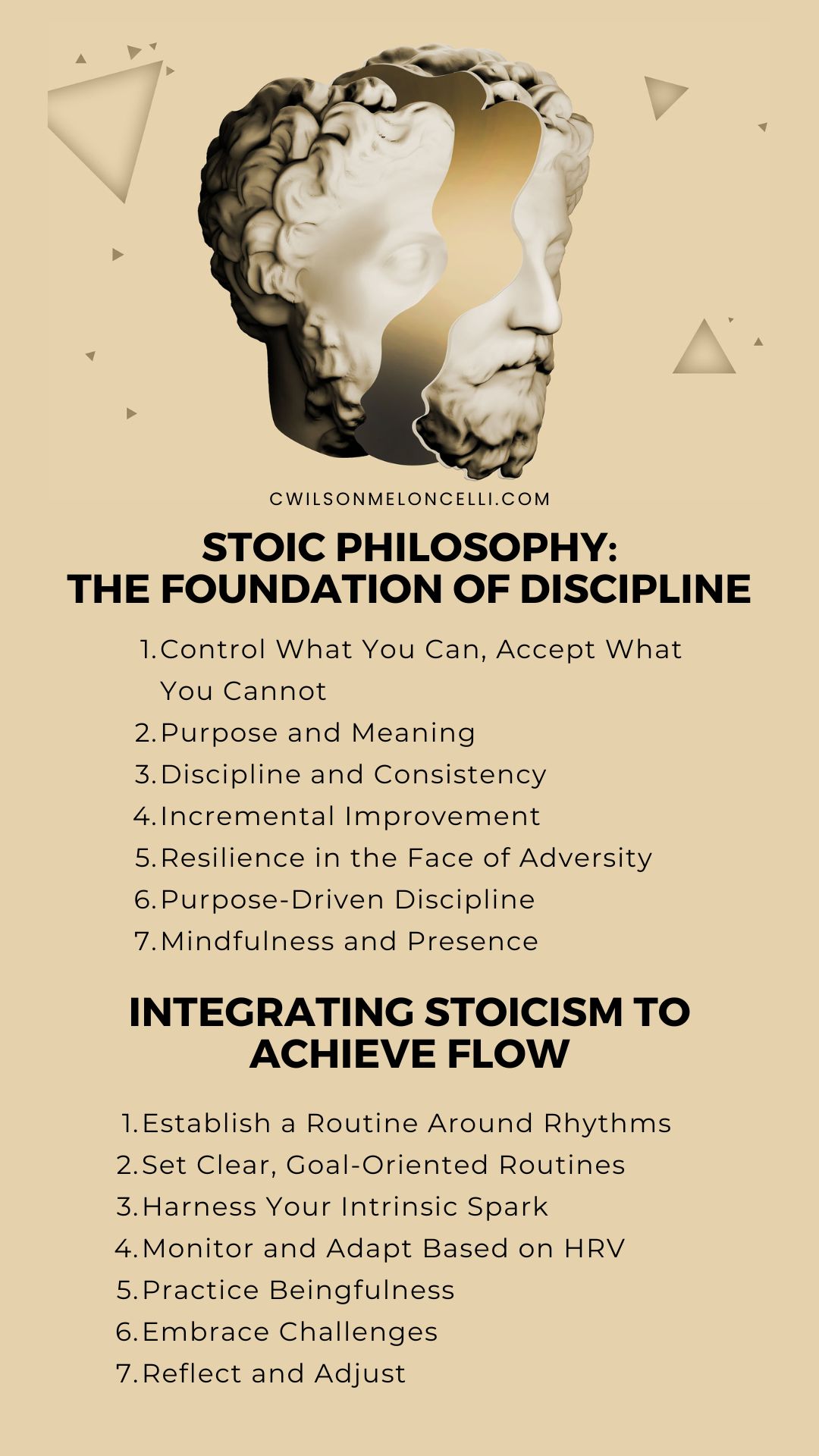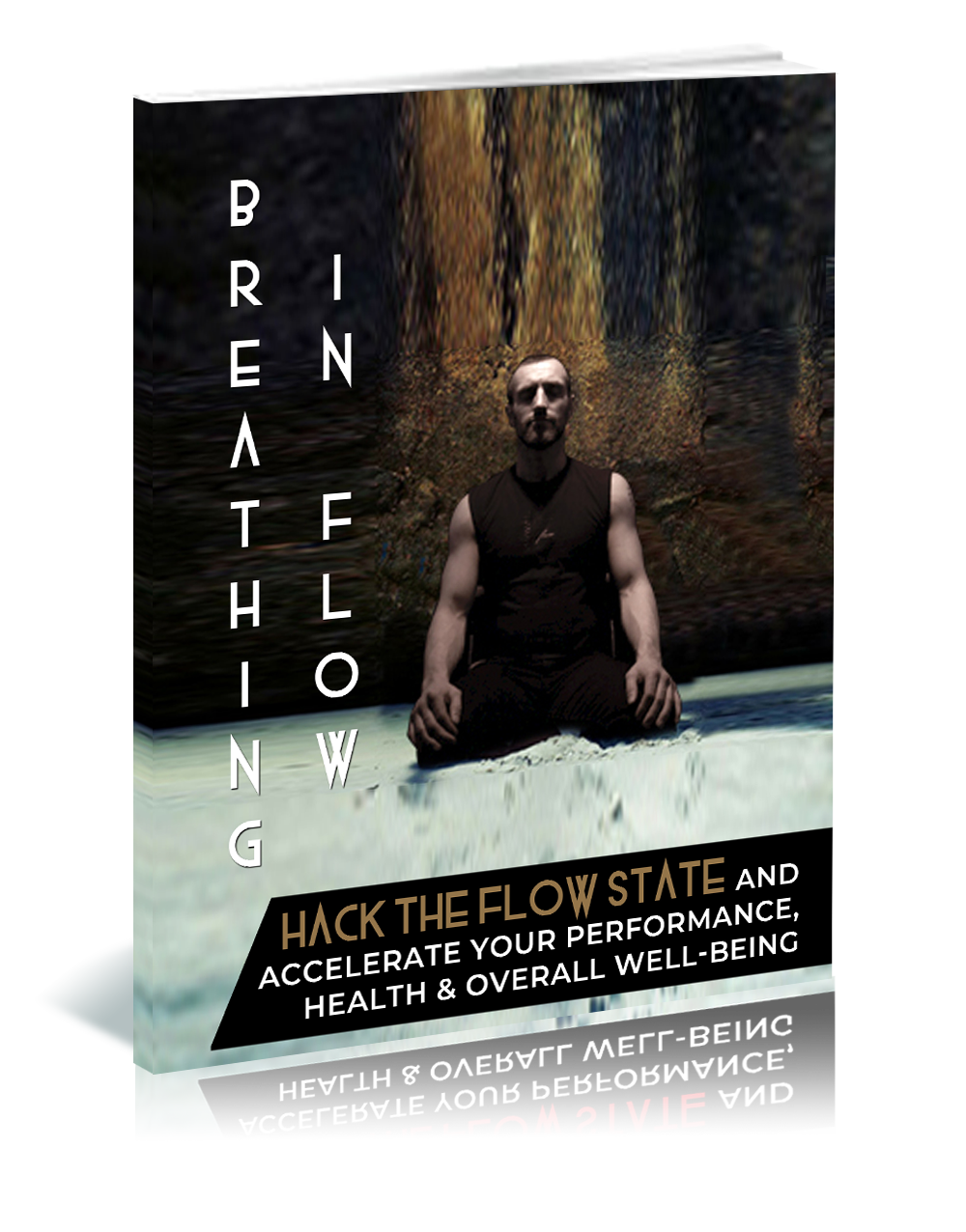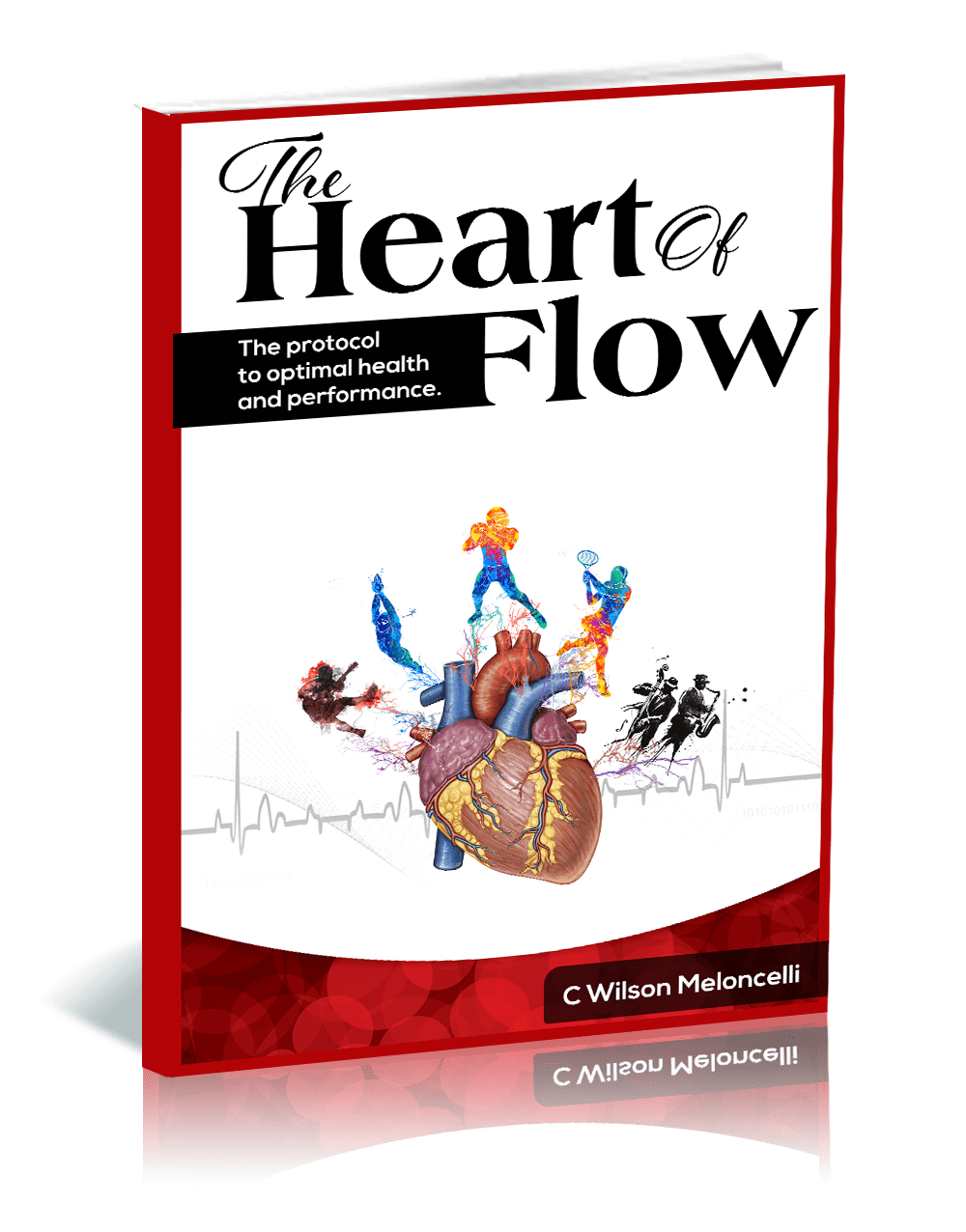
The pursuit of excellence and the desire to perform at one's best is a common goal among many of us. In this journey, the concepts of "flow state" and Stoic philosophy offer profound insights and practical guidance. Flow state, often described as being "in the zone," is a mental state where you are fully immersed in an activity, experiencing energized focus and enjoyment. Complementarily, Stoic philosophy emphasizes discipline, resilience, and inner tranquility. By integrating Stoic principles with the pursuit of flow, you can establish the consistency and discipline necessary to achieve flow state regularly and predictably.
Understanding Flow State
Flow state, a term coined by psychologist Mihaly Csikszentmihalyi, occurs when you engage in activities that match your skill level with the challenge at hand. This balance results in deep concentration, loss of self-consciousness, and a sense of control and reward. Athletes, artists, writers, and professionals often experience flow when they are fully engaged in their work, leading to high productivity and a sense of fulfillment.
Stoic Philosophy: The Foundation of Discipline
Stoicism, an ancient Greek philosophy founded by Zeno of Citium, teaches the development of self-control and fortitude as a means to overcome destructive emotions. The core principles of Stoicism include:
- Control What You Can, Accept What You Cannot:
This principle emphasizes focusing on what is within your control and letting go of what is not. This reduces anxiety and distractions, allowing for a more concentrated effort on tasks that matter.
- Purpose and Meaning:
Stoics believe in finding purpose in every action. When you align your activities with a greater purpose, you are more likely to be deeply engaged and find meaning in your work, a crucial element of flow.
- Discipline and Consistency:
Stoicism advocates for daily practices and routines that build discipline. This consistency is key to achieving flow regularly, as it creates a structured environment conducive to deep work. Establishing positive habits can make disciplined action almost automatic, reducing the mental effort required to begin tasks and increasing the likelihood of entering flow state.
- Incremental Improvement:
Ryan Holiday, in "Discipline is Destiny," advocates for small, consistent improvements. This aligns with the Stoic principle of continuous self-improvement and helps maintain the momentum needed for flow.
- Resilience in the Face of Adversity:
Discipline helps build resilience, allowing you to stay focused and productive even when faced with setbacks. This resilience is crucial for maintaining flow over the long term.
- Purpose-Driven Discipline:
Holiday underscores the importance of having a clear purpose behind your discipline. This purpose provides the motivation needed to engage deeply in work, fostering the conditions for flow.
- Mindfulness and Presence:
Stoics practice mindfulness, which involves being fully present in the moment. This presence is essential for entering flow state, as it requires undivided attention to the task at hand.
Integrating Stoicism to Achieve Flow
Combining Stoic philosophy with the pursuit of flow state can transform your approach to work and life. Here are practical ways to integrate these principles:
- Establish a Routine Around Rhythms:
Creating a daily routine that aligns with circadian and ultradian rhythms can help build the discipline needed for flow. Recognizing these natural rhythms ensures that work periods are optimized for peak performance.
- Set Clear, Goal-Oriented Routines:
Define clear, attainable goals for each session of work. This aligns with the Stoic practice of setting intentions and helps maintain focus, a critical component of flow. These goals must come from your intrinsic spark to establish flow consistently. Your intrinsic spark is unique to everyone, coming from your higher self and guiding you. When you align your spark with goal setting and orientation, you are flying!
- Harness Your Intrinsic Spark:
Motivation comes from an intrinsic spark, a unique drive within each person. By tapping into this internal motivation, you can find deeper engagement and satisfaction in your work. This intrinsic spark aligns with Stoic principles, as it helps maintain purpose and meaning in daily activities.
- Monitor and Adapt Based on HRV:
Use Heart Rate Variability (HRV) as a daily measure to align with flow. If HRV is lower than usual, adapt the day's intensity to gradually improve the nervous system's alignment. If HRV is high, proceed with the planned routine but remain adaptable. This responsiveness to HRV ensures nervous system resilience and maintains flow.
- Practice Beingfulness:
Incorporate Beingfulness practices such as meditation or purposeful state changing into your routine. This enhances your ability to stay present and focused, facilitating the entry into flow state.
- Embrace Challenges:
Stoicism teaches resilience and viewing challenges as opportunities for growth. By embracing challenging tasks that match your skill level, you can more easily enter flow.
- Reflect and Adjust:
End of day and start of week reflection on your performance and mindset can help identify what works and what doesn't. Stoics often reflected on their day, analyzing their actions and thoughts to improve continuously.
The integration of flow state and Stoic philosophy offers a powerful framework for achieving consistent excellence. By adopting Stoic principles of discipline, purpose, mindfulness, and resilience, you can create the conditions necessary for entering flow state regularly. Incorporating circadian and ultradian rhythms, harnessing intrinsic motivation, and using HRV to adapt daily routines further enhance this approach. Ultimately, the combination of Stoic philosophy and flow can lead to a fulfilling and productive life, where excellence becomes a predictable outcome.
To learn more about personalizing your flow state journey watch this free details tutorial on the flow state

References
- Chin, M. S., & Kales, S. N. (2019). Is There an Optimal Autonomic State for Enhanced Flow and Executive Task Performance? *Frontiers in Psychology*. Retrieved from [Frontiers in Psychology](https://www.frontiersin.org/articles/10.3389/fpsyg.2019.01716/full).
- Flowly World. (n.d.). Relaxing in Flow State: how flow can regulate your nervous system. Retrieved from [Flowly World](https://www.flowly.world/blog/relaxing-in-flow-state-how-flow-can-regulate-your-nervous-system).
- Frontiers in Psychology. (n.d.). Getting Into the Zone: A Pilot Study of Autonomic-Cardiac Modulation and Flow State During Piano Performance. Retrieved from [Frontiers in Psychology](https://www.frontiersin.org/articles/10.3389/fpsyg.2021.689144/full).









